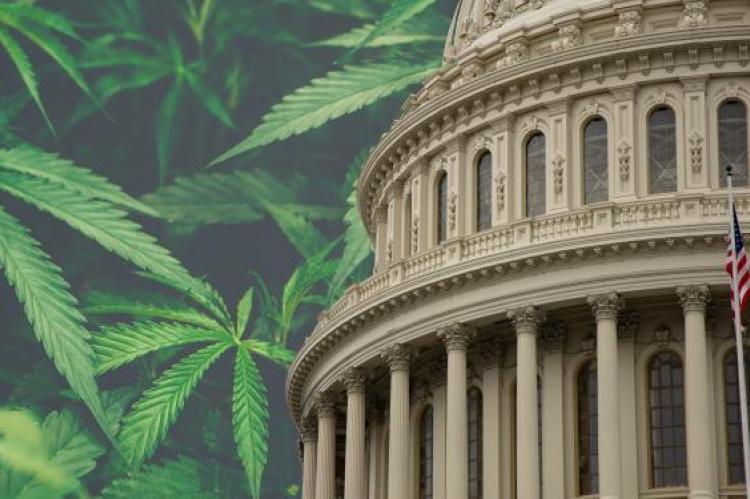Cannabis Legalization A Key Issue In 2020 US Presidential Election
Cannabis legalization will likely be an important issue for the U.S. presidential election of 2020.
That's according to a research report by Bank of America Securities analysts Bryan Spillane and Lisa Lewandowski.
However, the COVID-19 pandemic could put the debate on hold, they said.
The analysts break down the hypothesis into four elements, which include congressional activity, the Unity task force formed by Democratic candidate Joe Biden and Vermont Senator Bernie Sanders, cannabis taxation and legalization measures at the state level.
House and Senate Activity
The current economic recession will likely set back talks on cannabis legalization to 2021. The House is showing more activity around these issues, with 48 outstanding bills before various committees as of July 9, against 18 bills in the Senate.
The bills include decriminalization efforts and proposals for expungement of criminal records, among other significant measures.
Options Trade Ideas from Benzinga
In this market, there's never been a better time to profit with options. Get Benzinga Options: Starter Edition to follow Nic Chahine's high-conviction options trades. Click here to subscribe.
The SAFE banking bill, which passed House vote in September 2019 is currently awaiting Senate vote with little progress so far. The analysts, however, expect the inclusion of some form of cannabis banking reform in a COVID-19-related bill.
The Biden-Sanders Task Force
Last week, a Biden-Sanders task force introduced their recommendations to the Democratic National Platform Committee. The Democratic convention will be held in August in Milwaukee.
Sanders and Former Vice President Biden outlined a cannabis policy that remained in line with the measures proposed by the STATES Act, a bill introduced in Congress last year.
The recommendations seek:
- Democrat support of cannabis decriminalization and the rescheduling of cannabis through executive action on the federal level.
- Democrat support of legalization for medical cannabis federally.
- The right for every state to decide on recreational use.
- Avoidance of federal prosecution for conducts that are legal on the state level.
- The expungement of cannabis-related criminal convictions.
- The consideration of substance use disorders as diseases, not crimes, with a focus on the use of drug courts, harm reduction interventions, and treatment diversion programs.
Cannabis Taxes As A Way To Fill Budget Gaps
The analysis includes an idea that has been gaining momentum in recent months: cannabis legalization could inject a much-needed boost into the state’s fiscal shortfalls of 2020.
According to the report, the Center on Budget and Policy Priorities estimates that US state budget shortfalls will amount to an approximate of $615 billion from fiscal year 2020 to 2022, and that doesn't include local governments or US territories.
“History suggests that states will cut spending and draw on their rainy day funds, which may ultimately be insufficient. While legal cannabis will not fully fill these budget gaps, it could be part of the solution,” Spillane and Lewandowski wrote.
Governors from New Mexico and Pennsylvania have already voiced opinions in favor of this path, as well as spokespeople from many of the jurisdictions in California that have not yet allowed for legal cannabis. These add up to 70% of the Golden State’s municipalities.
Meanwhile, up to seven states — Arizona, Mississippi, Montana, Nebraska, New Jersey, Oklahoma and South Dakota — are expected to include cannabis reform measures on the 2020 ballot.
- Log in to post comments

